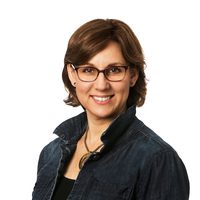Before you watch this webinar
Enhancing your learning experience begins with understanding you better. Collecting data enables us to tailor our educational content specifically for our audience. Discover more about how we handle your information in our Privacy Policy.
Event
Virtual clinics in COVID times
Background
The COVID-19 pandemic has pushed clinicians to adapt quickly to new and unprecedented circumstances to protect patients, clinicians and staff. Around the world, health and social care services have responded in different and innovative ways, trying to ensure the best interests of their patients as well as society as whole. Among the most at-risk for COVID-19 are older people with memory impairments and/or dementia who generally attend geriatric medicine or dementia services.
Here, Dr David Robinson of the ‘Medicine of the Elderly’ service at St James’ Hospital, Dublin, shares his experience of re-adjusting his service’s way of working. Hosted by Professor Iracema Leroi of the Global Brain Health Institute, Trinity College Dublin, Dr Robinson outlines the decisions that were made early on to turn the service into a ‘remote clinic’. He describes some of the challenges faced by patients and staff and suggests how ways of working will emerge in the near future.
Questions answered during the webinar
- Your outpatient clinic, which you will be describing for us serves many older people who have dementia, either with or without other health conditions. Please give us a description of the range of patients you seen generally, and, now that your clinic has gone virtual. (1:30)
- Can you describe for us the process of how you moved from the ‘old’ way to the ‘new’ way? (3:33)
- Can you describe some of the challenges you have had to overcome, particularly in relation to working with a person who might have cognitive impairment (5:24)
- One of the key issues we have tried to address on our Dementia Academy webinar is that of trying to make a new diagnosis of dementia, particularly as time is moving on and remote working is likely to be part of our new reality. (6:20)
- What might be the benefits or pitfalls for patients and /or staff with this way of working? (8:40)
- Are patients willing to come in to the hospital if you need to see them face to face? (12:20)
- What do you see as the role of the geriatric outpatient clinic or the memory clinic in supporting care partners and families? (14:20)
Presentation slides
David's slides
Our Dementia COVID-19 webinars are available on SoundCloud:
soundcloud.com/neurologyacademy
Were you registered on this course?
Log in to access resources..
LoginPromoting prevention, supporting management
Led by proactive clinicians determined to see improvement in the way we prevent, diagnose and manage dementias, Dementia Academy supports healthcare professionals with the latest tools, resources and courses to do just that.
